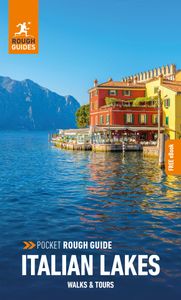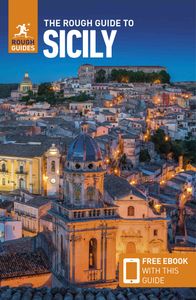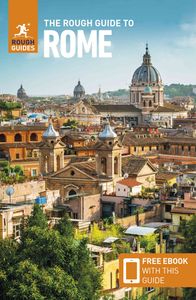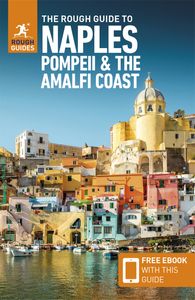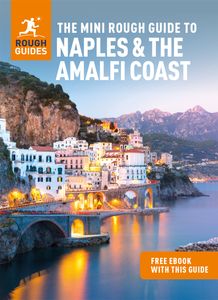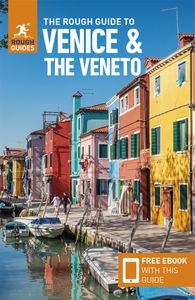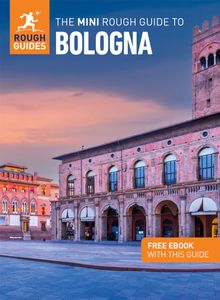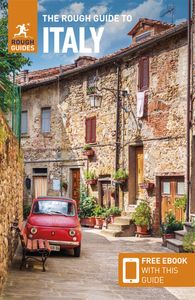Self-catering
Self-catering is becoming an increasingly feasible option for visitors to Italy’s cities. High prices mean that renting rooms or an apartment can be an attractive, cost-effective choice. Usually in well-located positions in city centres, and available for a couple of nights to a month or so, they come equipped with bedding and kitchen utensils, and there’s nothing like shopping for supplies in a local market to make you feel part of Italian daily life.
If you don’t intend to travel around a lot it might be worth renting a villa or farmhouse for a week or two. Most tend to be located in the affluent northern areas of Italy, especially Tuscany and Umbria, although attractive options are also available on Sicily and Sardinia and other rural locations too. They don’t come cheap, but are of a high standard and often enjoy marvellous locations.
Villa and apartment companies
Bridgewater UKt 0161 787 8587, w bridgewatertravel.co.uk. A company with over 25 years’ experience sourcing apartments, agriturismi and country hotels.
Friendly Rentals UK t 0800 520 0373, w friendlyrentals.com. Well-run company offering stylish properties in Milan, Florence, Venice and Rome to suit most budgets.
Holiday Rentals UK w holiday-rentals.co.uk. This site puts you in touch directly with the owners of over a thousand Italian properties.
Ilios Travel UK t 0845 675 2601, w iliostravel.com. High-quality selection of country mansions and villas, in various parts of the country.
Italian Breaks UK t 020 8666 0407, w italianbreaks.com. Accommodation for a range of budgets.
Italian Connection UK t 01424 728900, w italian-connection.co.uk. Major upmarket operator with an array of villas and smart apartments throughout the country.
Italian Homes UK t 020 3178 4180, w Italian-homes.com. Apartments in Rome, Florence and Umbria.
Livingitalia Italy t 39 06 3211 0998, w livingitalia.com. Apartments in Florence and Rome.
Owners Direct UK t 020 8827 1998, w ownersdirect.co.uk. User-friendly website advertising thousands of villas and apartments across Italy, booked direct through the owner.
Mountain refuges
If you’re planning on hiking and climbing, check out the rifugi network, consisting of about five hundred mountain huts owned by the Club Alpino Italiano (CAI; t 02 205 7231, w cai.it). Non-members can use them for around €10 a night, though you should book at least ten days in advance. There are also private rifugi that charge around double this. Most are fairly spartan, with bunks in unheated dorms, but their settings can be magnificent and usually leave you well placed to continue your hike the next day. Note that the word rifugio can be used for anything from a smart chalet-hotel to a snack bar at the top of a cable-car line. We’ve indicated where this is the case.
Camping
Camping is popular in Italy and there are plenty of sites, mostly on the coast and in the mountains, and generally open April to September (though winter “camping” – in caravans and camper vans – is common in ski areas). The majority are well equipped and often have bungalows, mainly with four to six beds. On the coast in high season you can expect to pay a daily rate of around €12 per person plus €10–15 per tent or caravan and €8 per vehicle prices in the Guide are for two people. Local tourist offices have details of nearby sites, or visit w camping.it.
Agriturismo
The agriturismo scheme, which allows the owners of country estates, vineyards and farms to rent out converted barns and farm buildings to tourists, has boomed in recent years. Usually these comprise a self-contained flat or building, though a few places just rent rooms on a bed-and-breakfast basis. While some rooms are still annexed to working farms or vineyards, many are smart, self-contained rural vacation properties; attractions may include home-grown food, swimming pools and a range of outdoor activities. Many agriturismi have a minimum-stay requirement of one week in busy periods.
Rates start at around €120 per night for self-contained places with two bedrooms. Tourist offices keep lists of local properties; alternatively, you can search one of the growing number of agriturismo websites – try w agriturismo.it, w agriturismo.com, w agriitalia.it and w agriturist.it.
